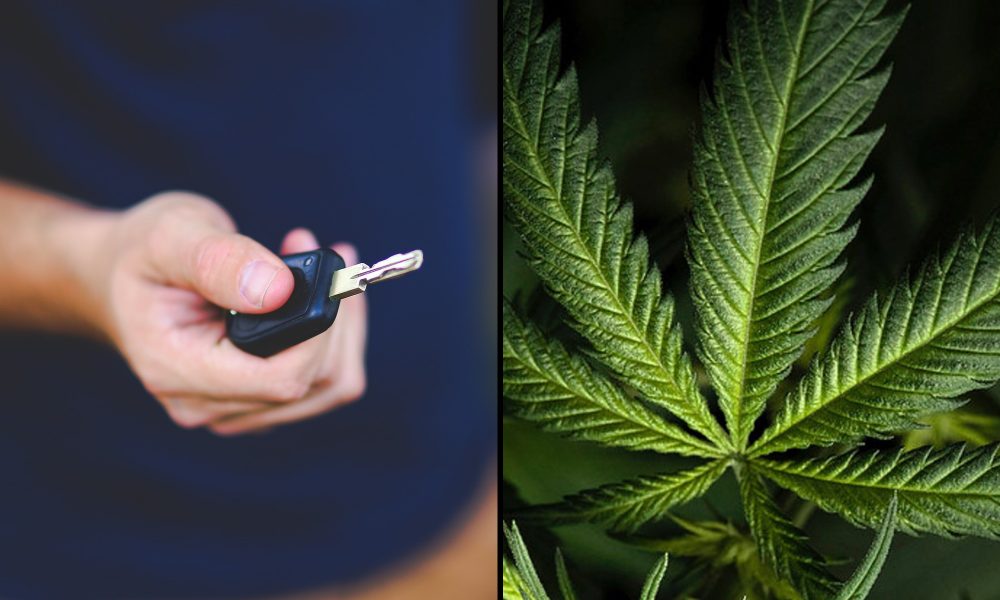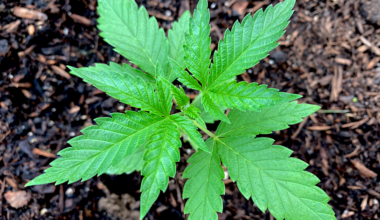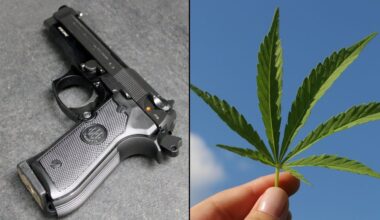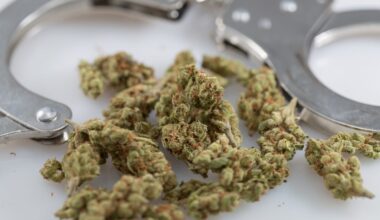States that legalize or decriminalize marijuana see “large reductions in race-based arrests among adults” while those that maintain prohibition continue to experience “increases in arrest rate disparities,” a new study in a major scientific journal published by the American Medical Association found.
The research looked at data from 43 states and identified a clear pattern. It might seem obvious on its face, but ending or loosening laws criminalizing cannabis is associated with significant arrest decreases compared to states that have maintained prohibition.
The analysis of arrests, which specifically focused on trends related to race, compared data from 2008 to 2019. The researchers from Eastern Virginia Medical School and Saint Louis University found that states that legalized cannabis saw 561 fewer arrests per 100,000 black people and 195 fewer arrests for white people on average over that time period.
Decriminalization, meanwhile, was associated with roughly 449 fewer arrests per 100,000 black people and a drop of 117 for white people.
In contrast, “cannabis arrests for adults and youth increased over time in states that did not implement a cannabis policy change,” the study, published in the Journal of the American Medical Association (JAMA) Health Forum last week, concluded.
And beyond raw arrest rates, racial disparities in arrests also increased in states that maintained prohibition while dropping in states that enacted reform.
“Among states without a policy change, arrest rates increased over time for Black adults and remained stable for White adults.”
“Overall, results revealed that states that implemented a cannabis policy change saw large decreases in arrests compared with states that had no policy reform,” the researchers concluded. However, they noted that the timing of these trends following the implementation of reform raises “questions about the generalizability of these effects to other states.”
There was also another nuance. Marijuana arrest data on adolescents indicated that young people faced a lower risk of being arrested under simple decriminalization as compared to legalization.
“Absolute arrest trends showed little change in White and Black youth arrest rates in states that implemented cannabis legalization, which was unsurprising, considering that youths are excluded from a legalized market that targets individuals 21 years and older,” the authors wrote. “Still, the need remains for targeted policies to address youth arrests and arrest disparities, as well as continued monitoring of policy effects.”
In any case, the study confirmed something that reform advocates have long argued: “States that did not implement any policy change showed no meaningful change in arrests for White individuals and an increase for Black individuals, thereby increasing the arrest rate disparity over time.”
“The decrease in possession arrests among decriminalization states coinciding with its implementation suggests that the policy itself is accounting for the change,” the study continued. “While states that implemented legalization were already experiencing marked reductions in arrests before the policy, states with decriminalization show evidence that the policy itself is the most salient impetus of an arrest rate reduction.”
“The absolute reduction in arrests among states with policy reform could have important implications for social equity. As noted, many argue that the severe consequences of possession convictions are more harmful than the health effects of cannabis use. Policy reform would not only reduce or eliminate monetary fines, but reduce court appearances, jail time, and probation, as well as the associated stigma. Further, with policy reform, steps could and should be taken to remedy cases in which individuals are currently serving time in jails or prisons because of possession arrests… Therefore, the short-term and long-term social equity effects of cannabis policy reform are widespread and multiplicative. Importantly, results suggest that these benefits will not be seen among states that do not implement any policy reform, as disparities in these states continue to increase.”
The researchers concluded by saying that while the results “do not unambiguously favor decriminalization nor legalization, increases in arrest rate disparities in states without either policy highlight the need for targeted interventions to address racial injustice.”
For those who’ve followed cannabis policy and the racist impacts of the war on drugs, the study findings aren’t especially surprising.
Even the head of the National Institute on Drug Abuse, Nora Volkow, has repeatedly highlighted and criticized the racial disparities in drug criminalization enforcement.
JAMA also published a study this year that finding that youth marijuana use does not increase after states enact legalization for medical or recreational use, challenging another prohibitionist narrative.
DC Lawmakers Remove Marijuana Bill Provision That Threatened Crackdown On Unregulated Market
Medical Disclaimer:
The information provided in these blog posts is intended for general informational and educational purposes only. It is not a substitute for professional medical advice, diagnosis, or treatment. Always seek the advice of your physician or other qualified healthcare provider with any questions you may have regarding a medical condition. The use of any information provided in these blog posts is solely at your own risk. The authors and the website do not recommend or endorse any specific products, treatments, or procedures mentioned. Reliance on any information in these blog posts is solely at your own discretion.






